
The World Bank estimates about 28.6 million Brazilians moved out of poverty between 2004 and 2014. But from the start of 2016 to the end of 2017, the World Bank estimates that 2.5 million to 3.6 million have fallen back below the poverty line of 140 Brazilian reais per month. Economists say high unemployment, near 13 percent, and cuts to key social welfare programs are challenging in the country.
Issues of income inequality and social exclusion remain the root causes for those in poverty. Inequalities also exist in access to education and educational efficiency. These inequalities are greatest for children and youth who are poor, live in rural areas or who have an incomplete compulsory education. Salesians working with poor youth and their families in Brazil develop programs and provide youth with opportunities for furthering their education and skills.
Salesian missionaries provide education, workforce development and social services across Brazil. They are focused on helping poor youth, including street children, have their basic needs met. Youth are able to gain an education to have the employment and life skills to break the cycle of poverty and live productive lives.
The Salesian mission of Iauaretê, located in the deep western part of the Brazilian Amazon at the border with Colombia, is one of the most difficult missions to reach. It normally takes three days to get there. Visitors must take a motorboat traveling up the Rio Negro and then continue toward Colombia, sailing the Rio Uaupes. Iauaretê is far away from everything, including institutions and critical services like hospitals and health centers.
Salesian missionaries in the area aim to give hope to the local people and help youth have a safe space for studying and play, along with adults to turn to for extra support. The Salesian mission of Iauaretê consists of a central missionary district, which comprises the St. Michael Archangel parish and 11 chapels. But the work of the Salesian missionaries extends over an area far greater, reaching 40 indigenous communities made up of 16 different ethnic groups. Missionaries are highly focused on their work with adolescents and children in the communities.
For many people, the future is uncertain because there are no factories, no university for advanced education and no work. School is only available until youth reach the age of 17, and then those who want to study and progress in life must leave the area and go to São Gabriel or Manaus. Alcoholism is a great problem in the local communities. Although there is a very clear law that forbids bringing any type of alcohol into the indigenous areas, it is often brought in illegally and is easily smuggled in from neighboring countries like Colombia. This often causes tragedies such as escalating family violence and early death from health complications from alcoholism.
Salesian programs offer youth a chance to access a safe space to study, play, engage with their peers and take classes in music, sports, English language and typing. The Salesian programs also allow youth to interact with caring adults who can help support them to make healthy choices in life, gain an education and think long-term about their life prospects.
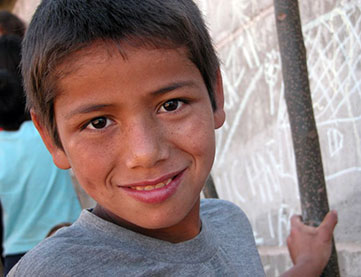
The Salesian School of São José was opened in 1936 to provide agricultural education to disadvantaged youth. Today, the school offers courses in mechanics, carpentry, shoemaking, tailoring, printing and agriculture. The broader Salesian educational community offers a high school, technical school and university classes as part of UNISAL, the Salesian Central University in São José.
Recently, Salesian missionaries and students completed a reforestation project of part of the local ecological park in order to protect the water source in the area and preserve the city’s water supply. The project entailed planting thousands of seedlings of native trees, which in a few years’ time will allow the area of new growth to become a segment of the forest.
According to results released by Brazil’s Ministry of Education, the Salesian-run Catholic University Center of Vitória was ranked as the best university center in the State of Espírito Santo and the eighth best in all of Brazil. The research that confirmed the ranking was conducted by Anísio Teixeira (Inep), the National Institute of Educational Studies and Research. Looking at published data on the National Exam of Student Performance for 2015, the University’s administration courses, accounting sciences and psychology programs received four points out of a total score of five.
The University Center belongs to the Saint John Bosco Province of Belo Horizonte. In the past two years, it has received four out of five points in all the courses evaluated. According to the rector of the University, Salesian Brother Cledson Rodrigues, the community has good reason to be proud of this result.
The University offers projects and courses focused on the sciences for both master and doctorate level degrees. Students also benefit from agreements with large companies for hands-on experience, as well as interdisciplinary, innovation and entrepreneurship projects that round out the students’ classroom studies. The institution also follows the technological innovations and changes in education paradigms. It has been investing for a long time in software, tools, games and virtual learning environments. In this model, students become the center of learning and the teachers work with challenges and real situations.
Professor Luiz Thimotheo, a physical education teacher at the Salesian Institute María Auxiliadora in Rio do Sul in the state of Santa Catarina, wanted to teach his students what it was like for other students who are faced with a physical disability. The goal was to both educate them about disabilities and allow them to experience a simulation of it firsthand to drive home the importance of inclusion.
The dynamic, educational and recreational activities Professor Thimotheo introduced were aimed at transforming physical limitations into recreational challenges meant to encourage his primary and secondary students’ active participation and to raise their awareness of the issue. He challenged them to play volleyball while sitting, kneel during soccer, dance while sitting in a chair and try other games of a similar nature.
It is estimated that there are more than 24 million people in Brazil with some kind of disability. In 2008, Brazil ratified the United Nations Convention on the Rights of Persons with Disabilities, as well as the Optional Protocol. In an effort to defend and guarantee decent living conditions for all people with disabilities, the Convention provides for systematically monitoring the situation and the day-to-day advances in human rights, enabling Brazil to report its situation and to recognize, with courage, that despite the work done to date, there still remains much to do.
Don Bosco City in Corumbá has worked with close to 30,000 youth providing training and education. Many of its students remain for 10 years or more to continue their schooling. At the end of their studies, they often receive ongoing academic support throughout their time at university and if needed, family assistance after that. A very strong bond is created between the Salesian-run program’s staff and the youth it serves.
Every day nearly 3,000 youth receive education and training services at Don Bosco City. There are about 2,000 students attending the primary and middle schools and 500 students enrolled in vocational training. Another 300 or more youth participate in the social welfare services offered and the Happy Youngsters Project.
The Happy Youngsters Project was initiated to serve those youth who return home from school to an empty house. Without afterschool care, these youth are more vulnerable to spending time on the streets.
The Salesian-run São José educational community in Campinas, a Brazilian municipality in São Paulo state in the country’s southeast region, was affected by a tornado with winds of more than 80 kilometers. The southeast regions of Brazil experienced high winds, lightning, damaging hail and torrential downpours right before the tornado struck. The Salesian School of São José suffered damage to some of the buildings and the educational community suspended classes to allow for repairs. All students and Salesian staff remained safe.
The Salesian School of São José was opened in 1936 to provide agricultural education to disadvantaged youth. Today, the school offers courses in mechanics, carpentry, shoemaking, tailoring, printing and agriculture. The broader Salesian educational community offers a high school, technical school and university classes as part of UNISAL, the Salesian Central University in São José.
Recently, Salesian missionaries and students in the school completed a reforestation project of part of the local ecological park in order to protect the water source in the area and preserve the city’s water supply. The project entailed planting thousands of seedlings of native trees, which in a few years’ time will allow the area of new growth to become a segment of the forest.
Salesians operate three youth centers in Brazil. At the Don Bosco Youth Center in Cabana, youth from the slums take part in socio-educational opportunities to help close educational gaps. At the Salesian-run Community Center in Porto Alegre, street children receive three nutritious meals a day, clean clothing, medical care, schooling and a safe place to get much needed rest. And at a new Salesian-run Center in Abaetetuba, abandoned and at-risk youth take part in a wide variety of healthy and educational activities. The center includes a recreation facility where children are able to participate on sports teams, make friends and gain a sense of accomplishment. All of the programs work with youth to help them lead productive lives and break the cycle of poverty.
In addition, the Salesians have an ongoing partnership with the Real Madrid Foundation granting more than 2,000 youth and vulnerable children the opportunity to participate in sports programs around the globe. A new socio-sports program in Brazil is operating alongside 13 other socio-sporting schools in nine countries including Togo, Benin, Congo, Ghana, Sierra Leone, Portugal, Senegal and the Dominican Republic.
Salesian missionaries are also aiming to expand their programs for youth. In parishes within the Archdiocese of Belém, Salesian missionaries launched a new oratory and youth program. The oratory is place for youth for both their school and religious studies as well as for sports, leisure, and healthy and safe activities with their peers. The goal is to develop a place where youth can come together and missionaries can promote good behaviors and study habits.
The development of the oratory is part of the Youth Sector Project of the Archdiocese of Belém, conceived by the auxiliary bishop of Belém, Salesian Msgr. Antonio de Assis, who is in charge of youth in the region. The objective of the archdiocese’s Youth Sector is to establish 50 oratories in 2018 in the metropolitan region’s most diverse areas, especially in the peripheral communities where juvenile crime is widespread. Currently, 25 parishes have already agreed to the initiative. For the activities to be carried out safely and with the necessary preparation, a program of three training sessions for volunteers is under way.
The Traveling Missionary Support Program, an initiative by Salesian missionaries, has built more than 250 wells in Brazil in the last several years. The program is based in Mato Grosso, a large state in west central Brazil largely covered with Amazon rainforest, wetlands and savanna plains. It supports local communities and Salesian programs in the rural villages through machine maintenance, the construction and maintenance of hydropower plants, and most recently, the construction of wells in areas that need a clean water supply.
The program supports the work of Salesian initiatives that focus on native populations, especially the Xavantes and Bororo tribes. Through this project, residents of the village are now able to drink unpolluted water instead of the water from the river containing pesticides from large soy, cotton and corn plantations.
In addition, Xavante are better able to treat their water and fight diarrheal disease thanks to a donation of clay filters. The rainy season in the villages relieves the intense heat and brings better vegetation but also causes health problems for the local population who drinks contaminated water.
To deal with the problem, Salesian missionaries have produced a series of guidelines on how to proceed in using the water collected from the river. First, information and spoons were distributed so that people could learn how to make whey, which is used for the treatment of the disease. The donated clay filters were also distributed. These two initiatives managed to contain cases of diarrhea.
The Salesian Youth Ministry, located in the city of Manaus on the banks of the Negro River in northwestern Brazil, recently implemented a project to collect and donate school supplies for 320 children and older youth in need.
The initiative was carried out at the beginning of the school term because many of the school supplies needed for the classroom are expensive and many poor families cannot afford to purchase them. Basic school materials were collected and distributed to children of the communities near the Shrines of Mary Help of Christians, Queen of Peace and St. Hedwig of Silesia and other nearby locations. An event was held to distribute the school kits to the children. The event also included games and songs and preventative health activities including dental check-ups. Parents were also able to receive training in parenting and other educational lessons.
The Salesian Youth Ministry has also prepared a series of educational activities, which began in March, to help children and older youth in public schools. Students who attend the Federal University of Amazonas and the University of the State of Amazonas facilitate these. Activities include educational lessons in the Portuguese language, mathematics and biology.
Brazil is among the countries hardest hit by the COVID-19 pandemic. In response, the Salesian University UniSales, located in Vitória in the State of Espírito Santo, is helping people who are suffering from the long-term effects of the virus through its Integrated Community Health Care Center. The Salesian University’s Faculties of Physiotherapy and Nutrition are providing the assistance both in-person and remotely.
The initiative was launched after the realization that many patients are still experiencing difficulties long after recovering from COVID-19. Long-term symptoms include fatigue, shortness of breath, muscle pain and mental confusion.
Salesian missionaries operate a school in Marauià, a small village overlooking a tributary of the Rio Negro deep in the heart of the Brazilian Amazon forest. The area is populated by the Yanomami, one of the ethnic groups that lives within the Amazon and that Salesian missionaries have been assisting for a hundred years, since missionaries first arrived in this inaccessible and unexplored region.
The school in the village was built in 2011, but was seriously damaged in 2017 by a hurricane. After almost two years of immense difficulty, Salesian missionaries are working to renovate the building to give the 128 students attending a better school environment. The elementary and middle school students are now divided into three shifts for morning, afternoon and evening classes so that they can all be accommodated.
A new project, backed by the Salesian Missions Office (Missions Don Bosco) of Turin, Italy, is providing the funding so Salesian missionaries can redo the school roof, which was torn apart during the hurricane, and work to reinforce the foundations, floor and exterior facade. The project is making the school safer for the students, but its meaning to the community is so much more.
From Brazil

From Brazil
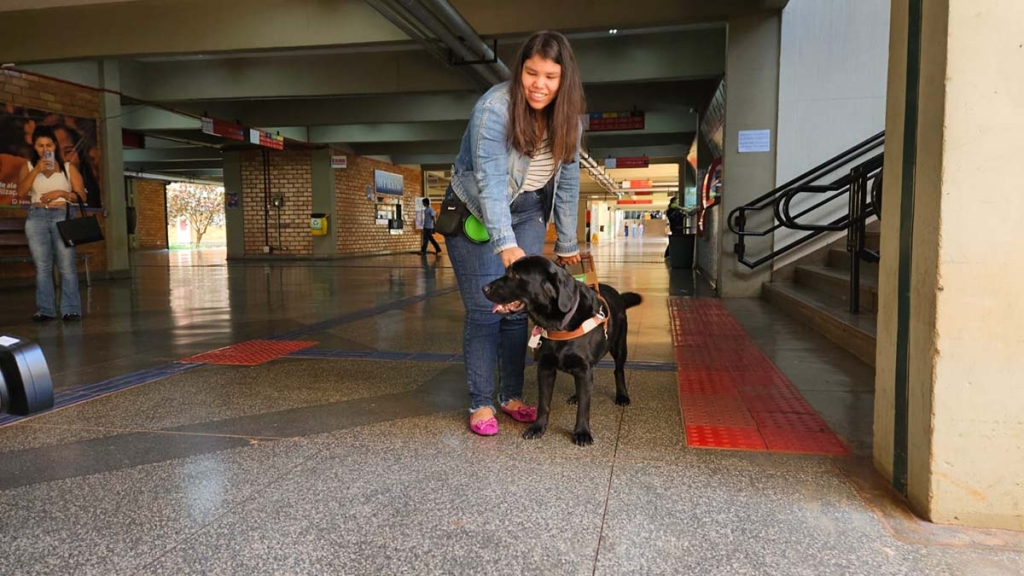
Programs advance inclusivity for people with disabilities. NEW ROCHELLE, NY (Dec. 3, 2025) Salesian Missions, the U.S. development arm of the Salesians of Don Bosco, joins humanitarian organizations and countries around the globe
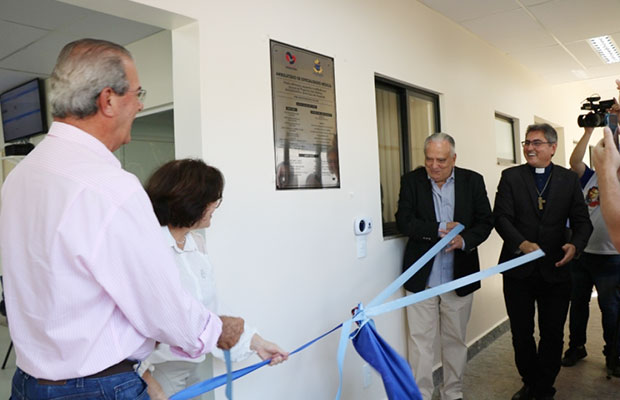
While much of Brazil enjoys considerable wealth, the inequalities between rich and poor are staggering. Impoverished children and families living in desolate areas are excluded from society and unable to access the healthcare serv
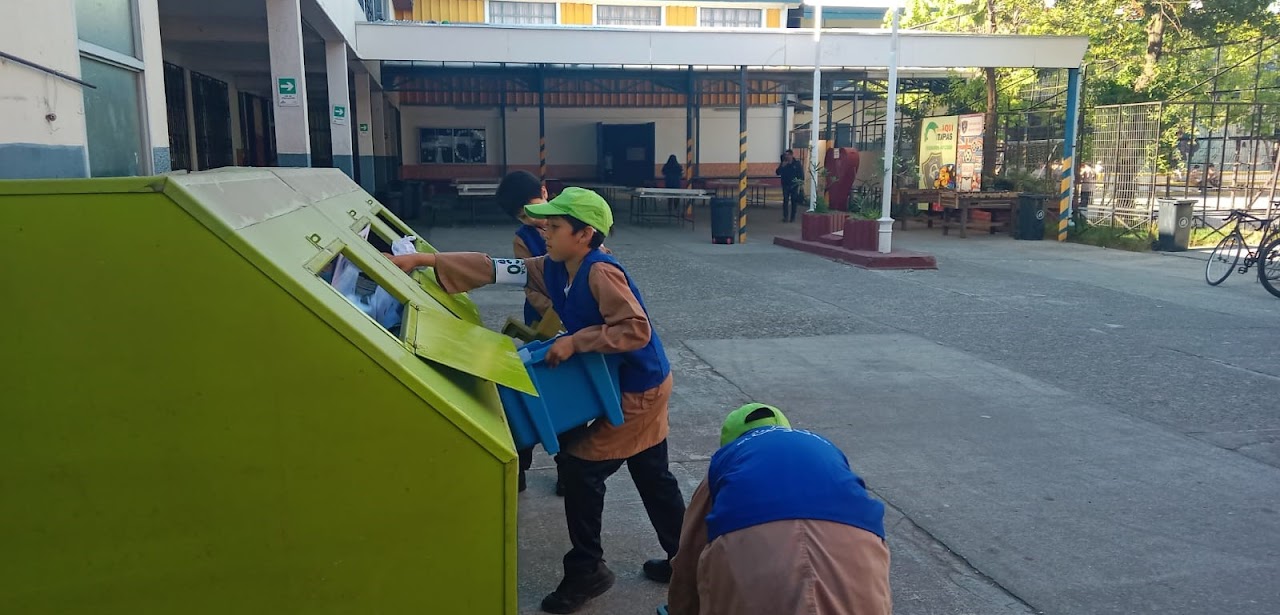
Salesians adding environmental education, activities to curriculum. NEW ROCHELLE, NY (June 5, 2025) Salesian Missions, the U.S. development arm of the Salesians of Don Bosco, joins humanitarian organizations and the international
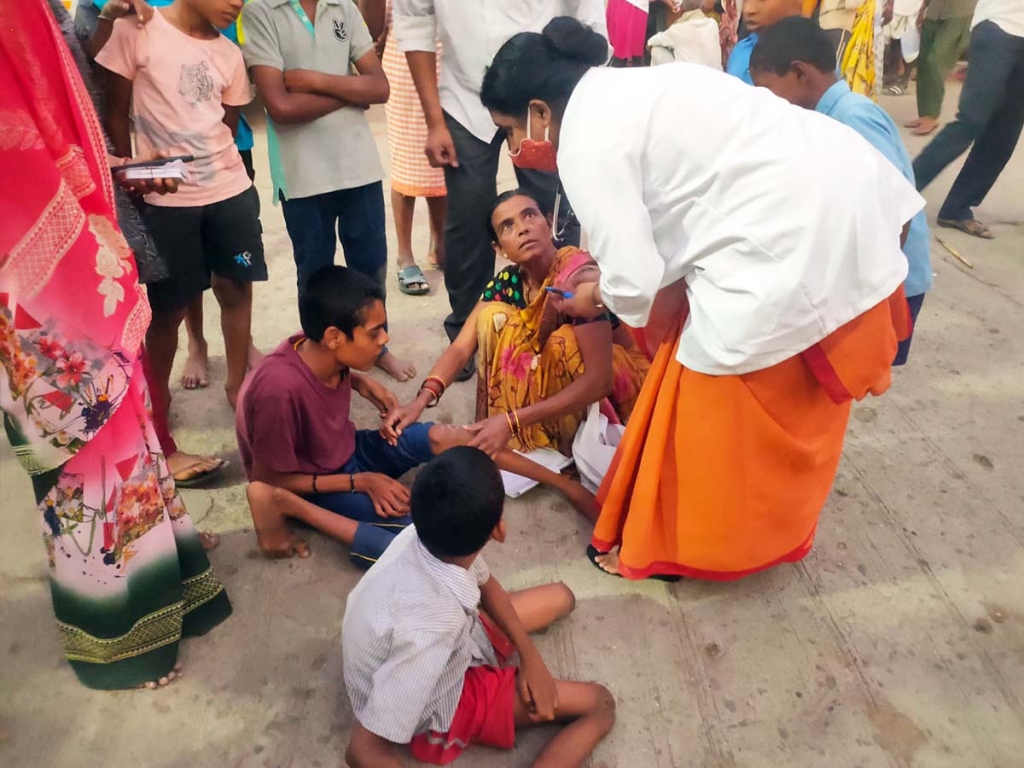
Salesian missionaries offer medical clinics and hospitals around the globe. NEW ROCHELLE, NY (April 7, 2025) Salesian Missions, the U.S. development arm of the Salesians of Don Bosco, joins humanitarian and other international org
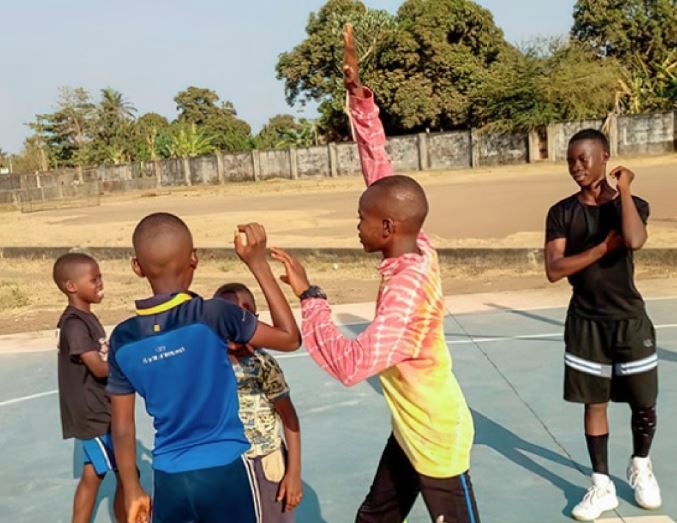
Sports programs empower and educate youth around the globe. NEW ROCHELLE, NY (April 6, 2025) Salesian Missions, the U.S. development arm of the Salesians of Don Bosco, joins humanitarian organizations and the international communi
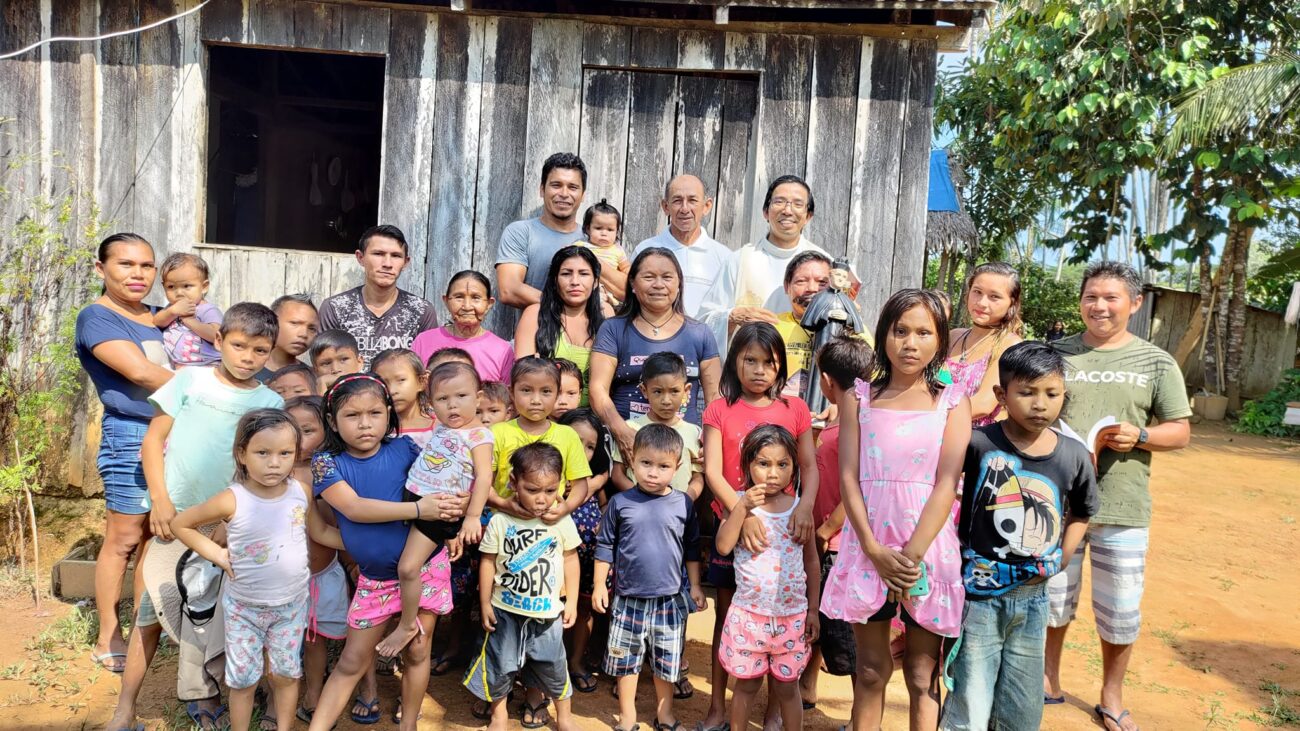
More than 1,000 youth and their families in Amazon region receive support. NEW ROCHELLE, NY (Nov. 25, 2024) Salesian missionaries in the Amazon are better able to travel to remote villages to provide people pastoral support thanks
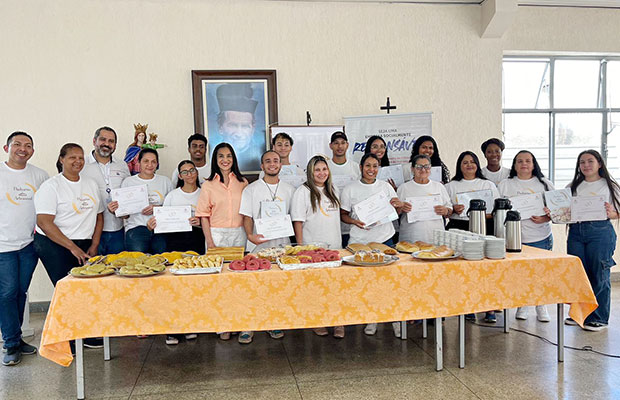
Who knew that baking a loaf of artisanal bread could change a person’s life? Well … the former first lady of Brazil did. And when she first approached our missionaries at the Salesian Center for Young Apprentices in Brasília
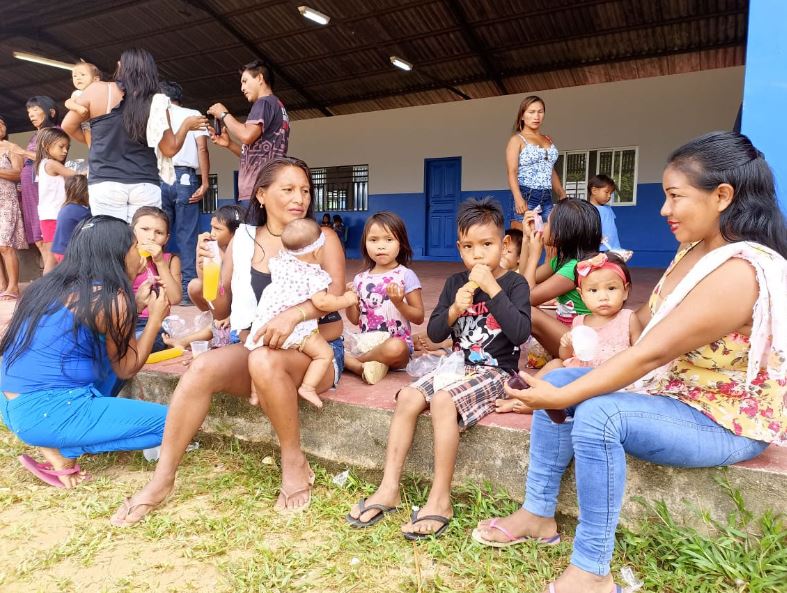
Programs provide care for youth and whole family. NEW ROCHELLE, NY (June 1, 2024) Salesian Missions, the U.S. development arm of the Salesians of Don Bosco, joins humanitarian organizations and the international community in celeb
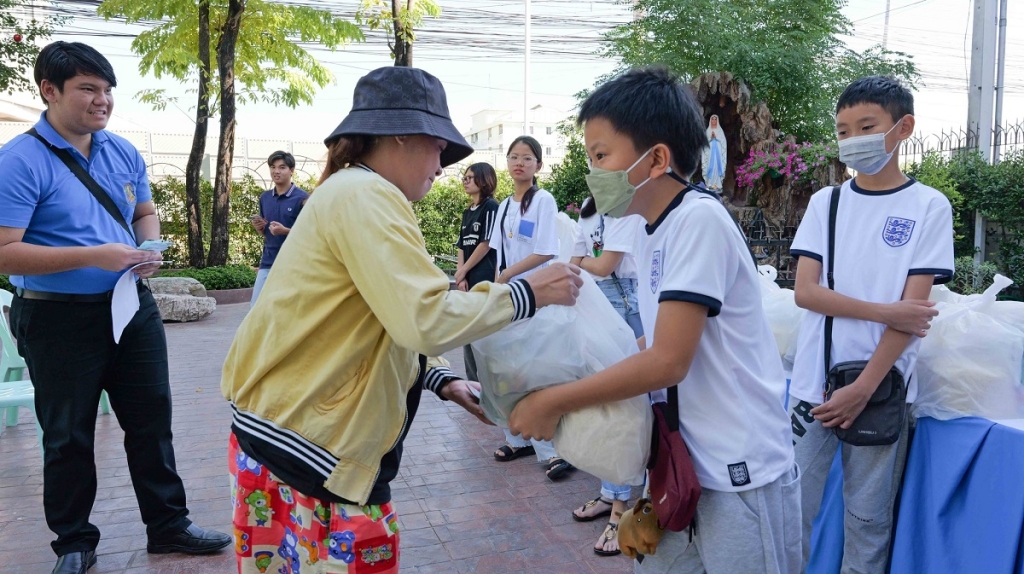
Salesians work with families to provide education, meet basic needs. NEW ROCHELLE, NY (May 15, 2024) Salesian Missions, the U.S. development arm of the Salesians of Don Bosco, joins humanitarian and other international organizatio
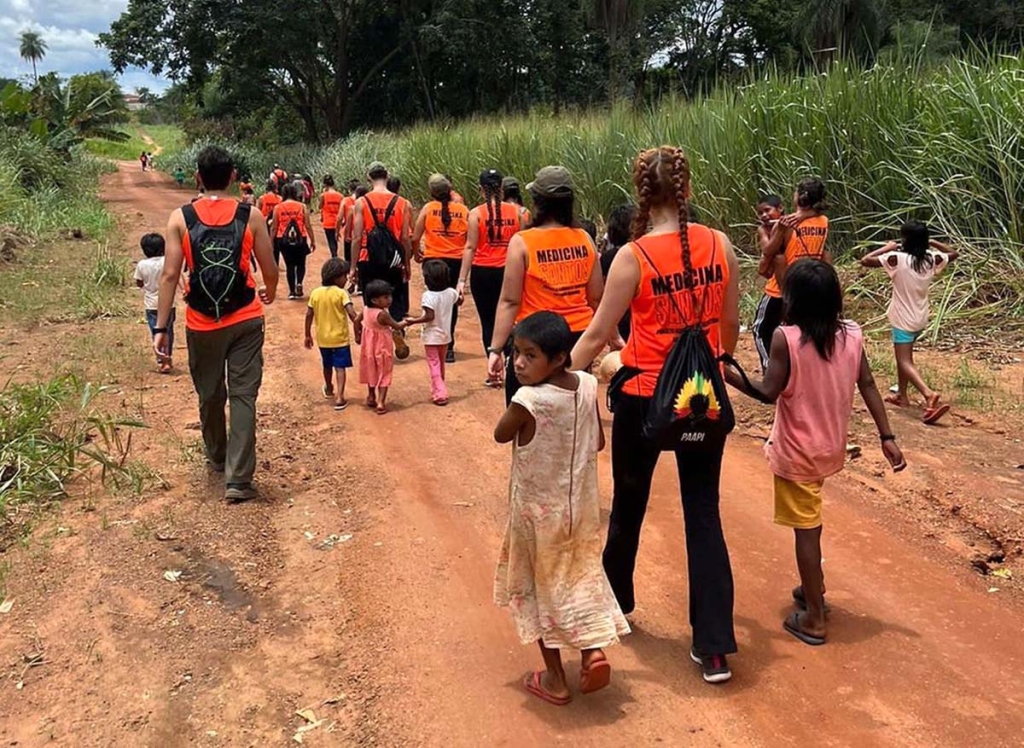
Salesian missionaries offer more than 150 medical clinics and hospitals around the globe. NEW ROCHELLE, NY (April 7, 2024) Salesian Missions, the U.S. development arm of the Salesians of Don Bosco, joins humanitarian and other int
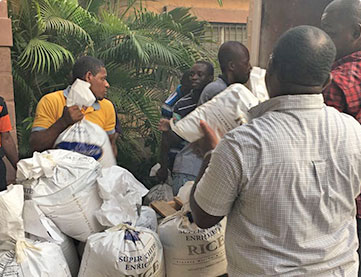
Salesian Missions includes agriculture in its vocational training programs – to ensure that youth of Rwanda learn better agricultural practices as well as keep the school self-sustaining in the face of the country’s food shortages.
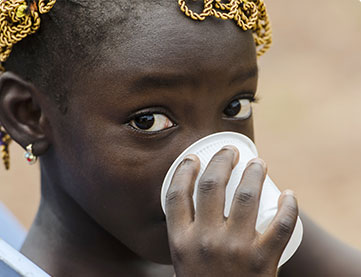
Salesian Missions includes agriculture in its vocational training programs – to ensure that youth of Rwanda learn better agricultural practices as well as keep the school self-sustaining in the face of the country’s food shortages.
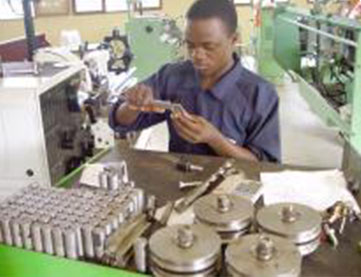
Salesian Missions includes agriculture in its vocational training programs – to ensure that youth of Rwanda learn better agricultural practices as well as keep the school self-sustaining in the face of the country’s food shortages.